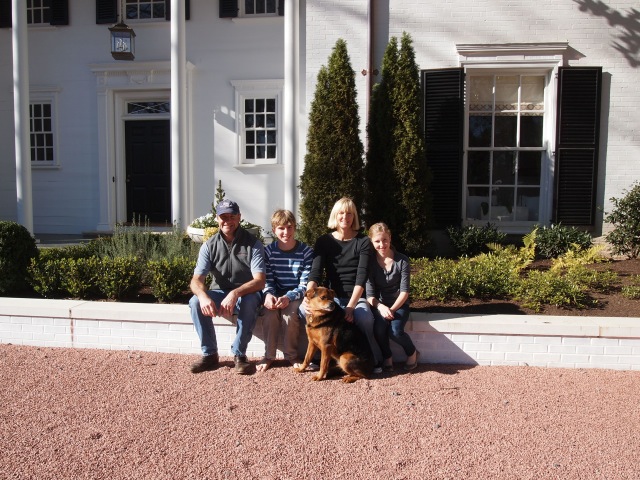Organic Living in Plaza Midwood
 Saturday, December 31, 2011 at 6:43AM
Saturday, December 31, 2011 at 6:43AM
“Putting a lot of chemicals in your body through the food you eat just can’t be that healthy,” Diana explains as we walk through her garden. “Seeing the number of chemicals that are used on farms to increase productivity, control weeds, control pests, avoid illness in animals, etc. made us realize how entrenched chemicals are in the commercial food-chain,” she continues, pausing to examine a broccoli floret. “So, we decided to try to limit the number of chemicals that we, and more importantly our children, are exposed to.”
The Wrigley family isn’t new to organic gardening. In fact, in their early years both Hugh and Diana spent time on family farms in their native Australia. “Both of our families grew sheep and wheat and were in a constant struggle with drought and terrible soil.” Diana explains. “Hugh's mother had about six no-till, raised beds in her garden. She used chicken manure, straw, and composted vegetable and garden scraps to fertilize the beds and improve the soil and always had a magnificent crop of vegetables each year.”
The Wrigley family lived in NYC for thirteen years before moving to North Carolina two years ago. There was little opportunity for gardening there, but lots of space and sunshine on their new, one acre property nestled at the edge of the Charlotte Country Club in Plaza Midwood. “When we moved to Charlotte we joined a CSA group and received a weekly supply of organically grown vegetables,” Continues Hugh. “ It has been a great experience, but we wanted to have a little more control over which types of vegetables we eat and when they are harvested.”
Serious organic gardeners need a serious organic garden, so we designed and installed a five bed design inspired by a European kitchen garden design that’s been in use for centuries. Each bed was constructed with three layers of interlocking Western Red Cedar 4x4 posts , and filled with a blend of sustainably harvested peat moss, mushroom compost, and perlite- all of which are approved for organic gardening by the Organic Materials Review Institute ( OMRI ).
Microfarm Mix fertilizer put the right combination of slow, medium, and fast release organic nutrients in the soil, and to make sure the garden beds receive adequate water during the hot summer months, a ½” Netafim drip irrigation system was installed on each bed.
An assortment of cool season heirloom varieties are thriving in the garden, including Blue Curled Scotch Kale, Rainbow Chard, Inchelium Red Garlic, Calabrese Broccoli, and Detroit Red & Chioggia Beets.
The Wrigleys' commitment to organic doesn’t end at the garden gate, though. Microfarm also designed and installed a sturdy, large capacity compost system built using Western Red Cedar lumber and galvanized fasteners and roofing.
“Composting just makes sense,” Diana laughs, raising the lid on the compost system. “Putting stuff in plastic bags and sending it to a land-fill rather than putting it back into the soil just seems silly. Feed the soil and it will feed you , so that's what we're doing!”
And people have noticed. In fact WCNC-36's Bobby Sisk recently covered the Wrigley's organic garden and compost system in a news story about Microfarm Organic Gardens. Click Here to see the WCNC-TV story.
True to their organic lifestyle, Hugh and Diana even maintain their home’s landscape without the use of any chemically based fertilizers and insecticides, which means that they can safely compost grass clippings and any other organic matter on their property.
“We decided to plant a lawn and landscape that needed minimal treatment, and we're going to make sure that any treatments that are needed are organically based.”









Reader Comments